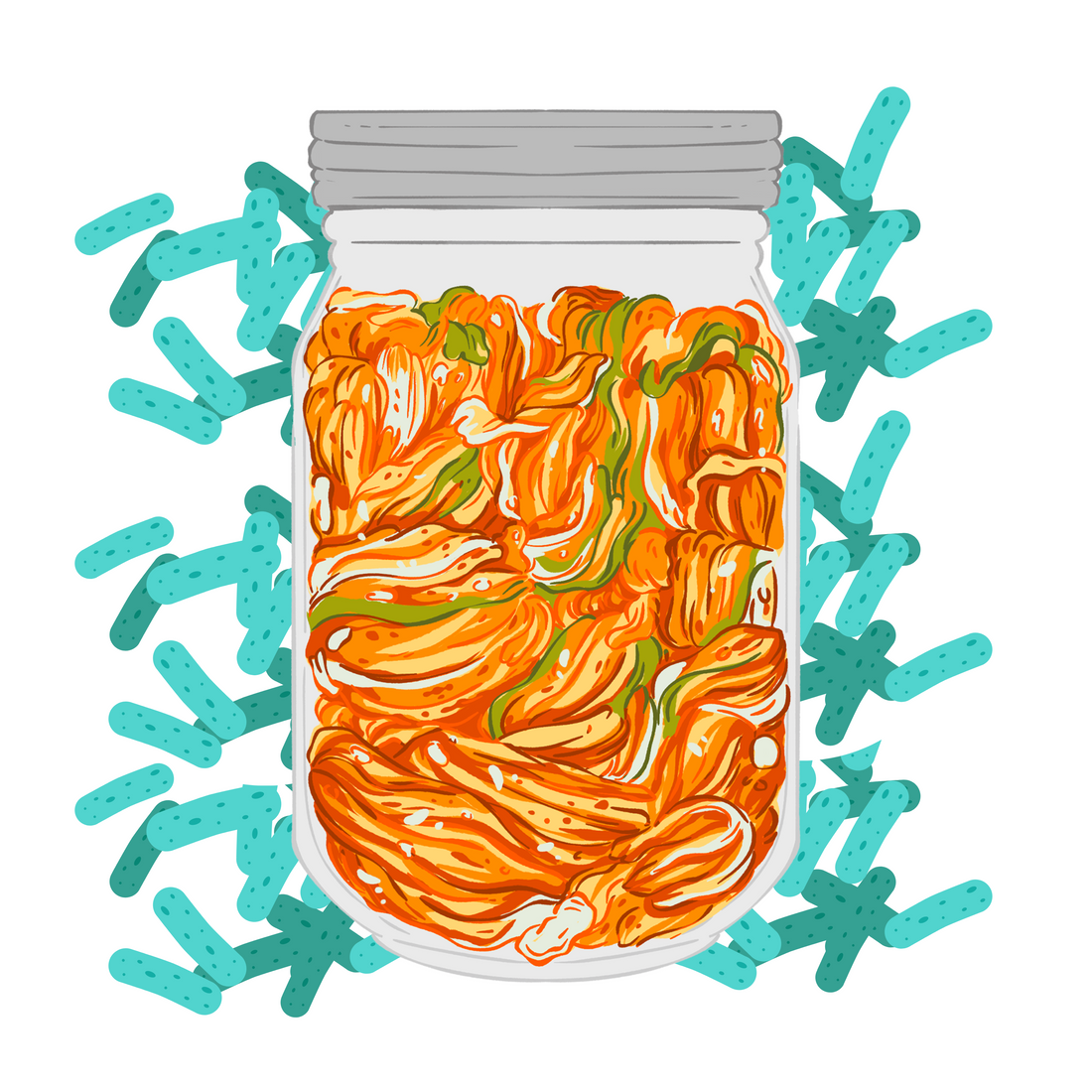
Why are Fermented Foods Good for You?
Share
What are fermented foods?
Fermented foods are produced by microbes that use enzymes to partially break down foods, changing their composition and taste. For example, fermenting milk can produce yoghurt or kefir, depending on the microbes used, while fermenting cabbage produces sauerkraut. Most fermented foods contain live microbes, with approximately a million microbes per gram. These microbes are the “good” type, known as probiotics. Fermented foods have been used in food preservation for years because these beneficial bacteria prevent the growth of food-spoiling bad bacteria.
Why are fermented foods good for you?
Your gut contains trillions of living microorganisms, making up the microbiome. The living microorganisms in fermented foods can remarkably pass through the acidic environment of your stomach and integrate into your existing microbiome. Once in the gut, probiotic microbes have two main benefits. Firstly, they compete with “bad” disease-causing bacteria for food and space, reducing their numbers. Secondly, as the microbes ferment food within your gut, they produce beneficial by-products. These by-products have been shown to feed your colon cells, reduce inflammation, and regulate brain function.
Fermented foods often have a different composition compared to their non-fermented counterparts, which can make them better for you. For example, the carbohydrates in sourdough bread are partially broken down by microbes, making sourdough easier to digest than regular bread.
Can I make my own fermented foods?
Yes! It’s easy to get started making your own fermented foods. The basic ingredients you need are time, a fermentation jar, and the raw ingredients. For example, to make sauerkraut, mix green cabbage with 2% salt and add it to a fermentation jar for around 7 days. Additionally, to make sourdough, you use a “starter,” which is a culture of live microbes as the base for the bread. You make this by mixing flour and water and leaving the mixture open to the air for 5-7 days so wild yeasts can colonise it. Once you’ve got your starter, it can last for years, providing a continual supply of bread yeast for making fresh bread.
In conclusion, fermented foods offer a world of benefits for our health and taste buds alike. From their probiotic-rich composition to their ease of homemade preparation, they stand as a testament to the wonders of microbial transformation.
